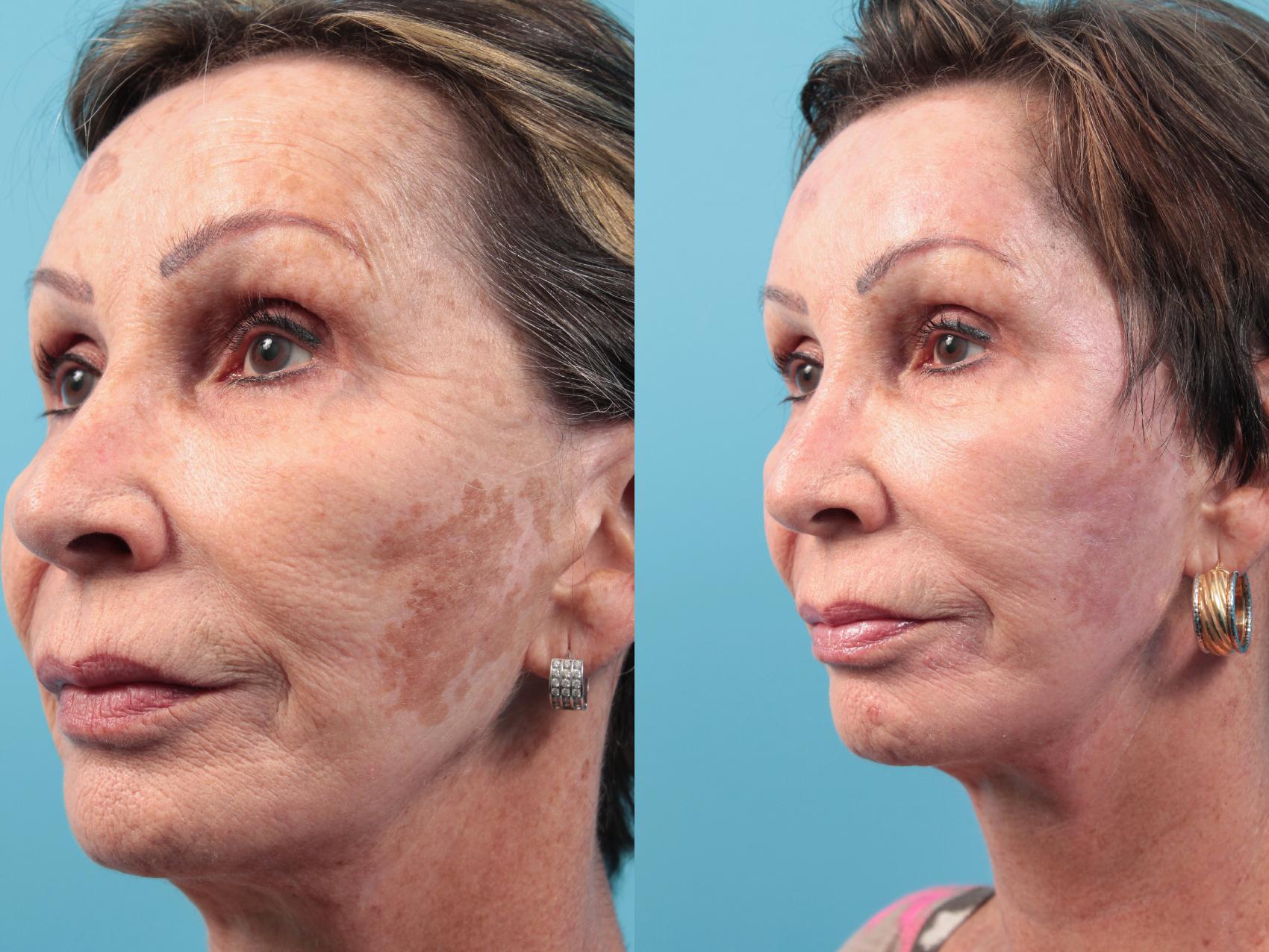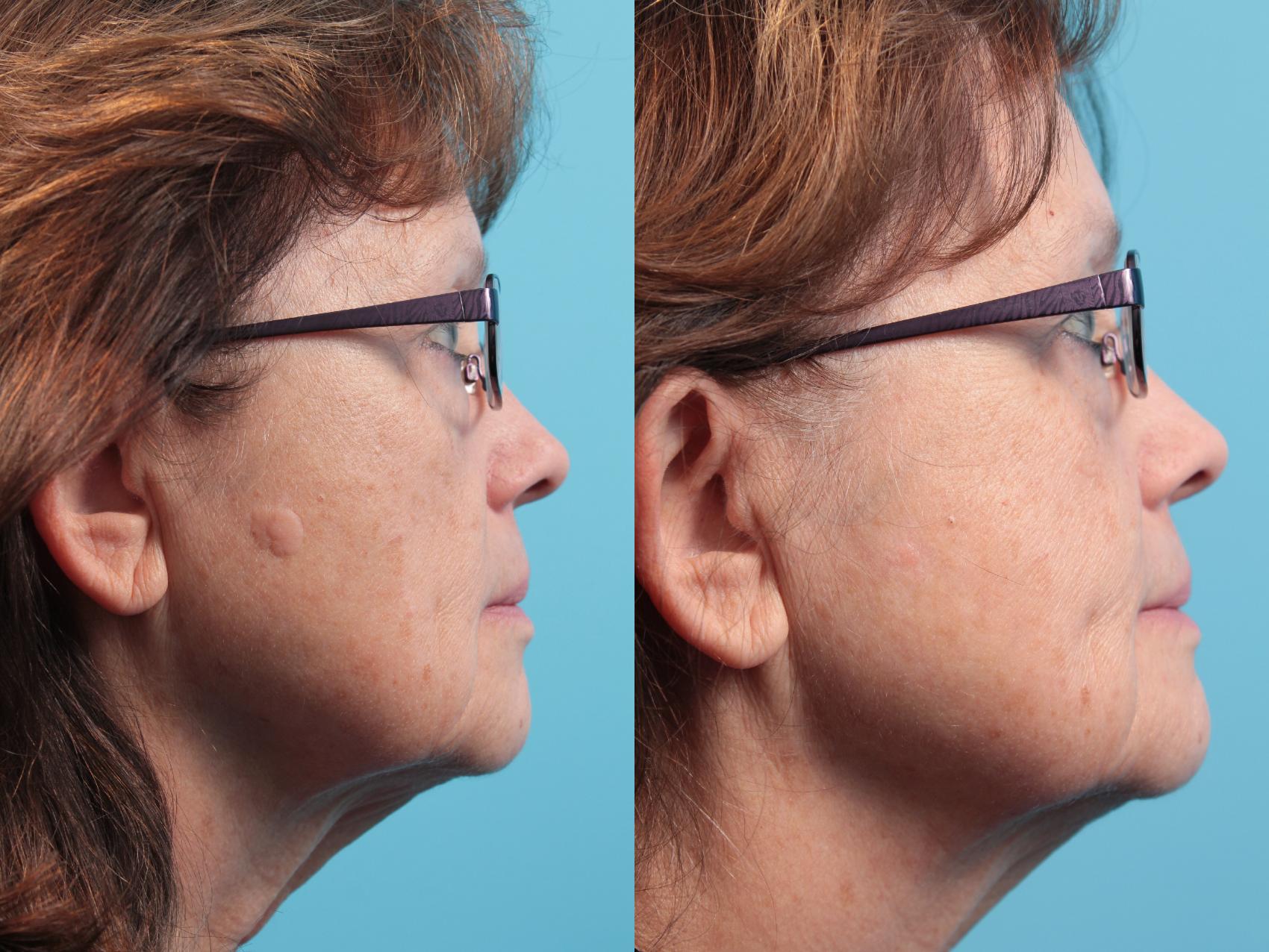Laser skin resurfacing is a popular nonsurgical approach men and women choose to refresh and rejuvenate tired, dull, or damaged skin. It’s a solution that can address skin concerns such as fine lines, wrinkles, acne scars, stretch marks, sunspots, and hyperpigmentation. But what does laser skin resurfacing do to your skin? And what are the key things you should know about laser skin resurfacing if you’re considering this treatment approach?
Keep reading for 5 takeaways to know before you go to your next med spa consult to help ensure you get the best laser skin resurfacing results:
1) What is Laser Skin Resurfacing… And How Does it Help Your Skin?
Various customizable laser skin resurfacing techniques are available today, including ablative, non-ablative, hybrid laser, and fractional laser skin resurfacing. In general, laser skin resurfacing aims to improve skin tone and texture (usually on the face, neck, and chest) by directing highly concentrated pulses of laser energy into damaged skin. The treatment removes the skin’s upper layer, revealing fresh, healthy skin underneath. Many patients find laser skin resurfacing to be an excellent alternative to surgical facial rejuvenation.
2) The Difference Between Ablative vs Non-Ablative Laser Skin Resurfacing
Ablative lasers, such as a CO2 laser, vaporize the skin’s outer layer. An ablative laser treatment is more aggressive and involves longer downtime but produces dramatic results after only 1 treatment. Non-ablative lasers, such as Laser Genesis, don’t injure the skin. Instead, heat generated by the laser promotes collagen production and skin rejuvenation without injuring the skin’s surface. MOXI® is a fractional non-ablative that creates thousands of pinpoint injuries to the skin while leaving surrounding tissue unharmed. Laser Genesis uses non-ablative laser skin resurfacing to minimize the appearance of acne scars. while MOXI laser is one of the gentlest laser treatments we offer to improve skin discoloration. The results of either laser skin resurfacing approach can last for years, but ablative laser results typically appear more quickly than non-ablative treatment results.
3) What Happens During Fractional Laser Skin Resurfacing?
Fractional laser treatments, such as HALO® laser, direct tiny beams of laser energy into targeted areas that create channels in the skin. This technique affects only a fraction of your skin without impacting the tissues in surrounding skin channels. This process triggers collagen production, resulting in smoother, firmer skin. Fractional laser treatments are gentler than other lasers and require less downtime. However, multiple treatments may be necessary to achieve your desired results. Patients may also opt for a BBL®, treatment, which uses intense pulsed light (IPL) to restore damaged skin. Combining BBL with HALO is a very popular option.
4) When Should You Choose C02 Laser Skin Resurfacing?
This ablative laser treatment works wonders by heating water molecules in the skin to remove damaged layers while triggering a powerful healing response. The laser blankets the treatment area with greater depth and intensity than other laser treatments. Men and women with more advanced aging symptoms, deep acne scars, or severe sun damage are generally good candidates for CO2 laser treatments.
5) Laser Treatment and Recovery Time
Generally, your skin can take up to 2 weeks to heal following ablative laser skin resurfacing treatment. It is normal to experience some burning and peeling during the initial recovery process. Your skin may appear pink for a few months, but makeup can help camouflage any redness. Remember, non-ablative laser skin resurfacing is a gentler approach that requires less recovery and downtime than ablative laser treatments.
Now that we’ve broken down what’s important to know about laser skin resurfacing, it’s time to keep these 5 takeaways in mind as you take the next step toward achieving smooth, glowing skin! We encourage you to request a consultation using the online form with one of our laser skin specialists or call us at (515) 277-5555.





Leave a Reply